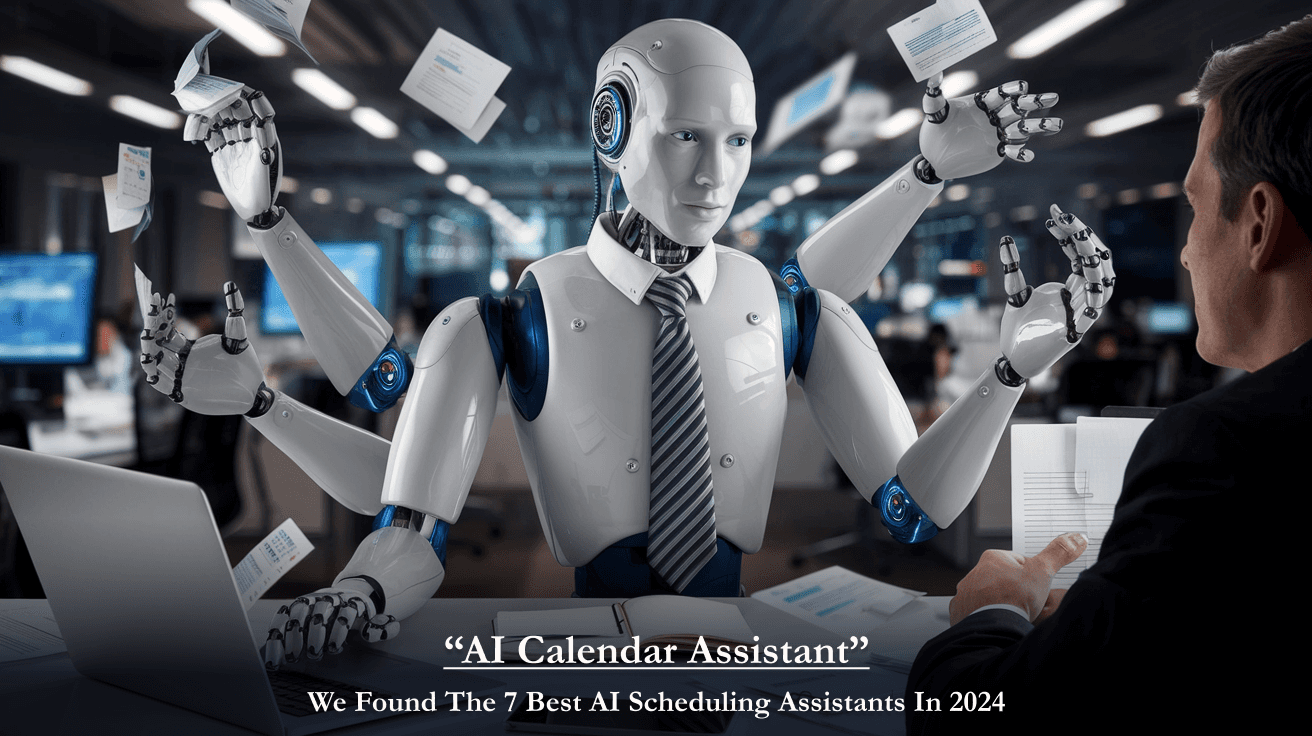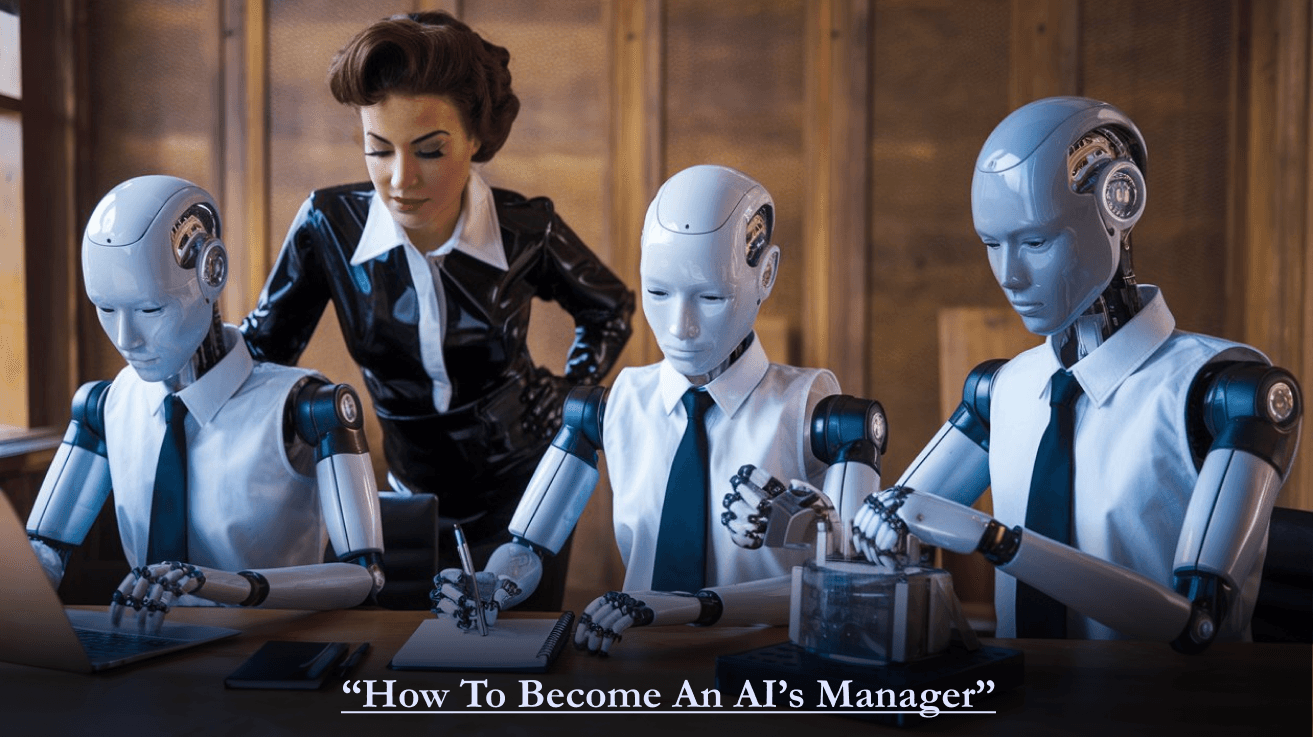08-Oct-2024
Why This Is The Best Time To Have An AI Executive Assistant
Only a few innovations hold the promise of transforming the topography of workplace productivity nearly as thoroughly as the emerging AI Executive Assistant. As we stand on the cusp of a new chapter in the history of operational efficiency, it is only fitting that this leading edge of new technology calls us toward a future of working and communicating and deciding that seems inescapable. In this deep investigation, we strip away the hype and skepticism surrounding AI-powered executive assistance to let its truer potential shine through—and also its possible pitfalls.
Genesis of AI in the Corporate World
To understand just how these revolutionary AI Executive Assistants are going to change everything, we need to understand the trajectory of the development of artificial intelligence in the business world. The introduction of AI within corporate environments has been nothing short of meteoric-massive advances with a sweep, from speculative science fiction some decades ago.
The journey began with the rule-based systems of the 1980s and 1990s, which could pursue predefined logic in the automation of simple tasks. From such simple beginnings, these basic programs led the way to more complex AI applications. As the new millennium unfolded, machine-learning algorithms began to appear. These enabled systems to learn from data and to progressively evolve over time without explicit programming.
The Big Data Revolution and Neural Networks: What fueled the leap of AI were the big data explosions during the 2010s. As tremendous amounts of information were available, researchers and developers continued to train more complex neural networks that mimicked the human capacity to recognize patterns and make decisions. This advance allows the innovative work of natural language processing (NLP) and computer vision to take hold, the two technologies that form the heart of modern AI Executive Assistants.
Current Scene: AI as an All-Pervasive Business Tool: AI has now penetrated almost every action possible in a business process. Predictive analytics in finance or a customizable marketing campaign depends on artificial intelligence to be perfectly effective. It is within such an all-pervasive environment that the concept of AI Executive Assistants has emerged as the next frontier in productivity at work.
Redefining the AI Executive Assistant: Beyond the Concept of Digital Secretary
At its core, an AI Executive Assistant is the pinnacle of software engineered to supplement and augment human capabilities at work. To describe it simply as a digital secretary would be a gross understatement. Instead, these AI-based technologies are something that represents a quantum leap in the approaches to task management, decision-making, and information processing.
As we dug deeper into the capabilities of these AI assistants, we discovered a range of features that go far beyond simple task automation:
1. Cognitive Workload Management: Unlike traditional digital calendars or to-do lists, AI Executive Assistants employ sophisticated algorithms to analyze work patterns and prioritize tasks. This cognitive approach to workload management ensures that professionals focus on high-value activities, potentially saving up to one-third of their time.
2. Round-the-clock Availability: In our 24/7 global economy, the ability to access support at any time is crucial. Our investigation revealed that AI assistants are filling this gap, providing constant availability that human assistants simply can't match.
3. Data-Driven Decision Support: Perhaps one of the most intriguing findings of our research is the AI's capacity for data analysis. These assistants can process vast amounts of information, providing executives with actionable insights that can inform critical business decisions.
4. Adaptive Learning Capabilities: Through our interviews with early adopters, we uncovered a fascinating aspect of AI assistants: their ability to learn and adapt. Unlike static software, these AI entities evolve over time, becoming more attuned to the user's preferences and work style.
Cognitive Workload Management: The Science of Getting Things Done
Perhaps the most breathtaking feature of AI Executive Assistants is the intelligent cognitive workload management. With AI systems, unlike project management software or to-do lists, advanced algorithms help analyze work patterns, prioritize tasks, and anticipate future workloads based on historical trends.
AI Executive Assistants work at a level of work much higher than just scheduling simple tasks," said Dr. Elena Rodriguez, cognitive psychologist and workplace productivity expert. "They understand the subtleties involved in different kinds of work to be done; energy input in those tasks; circadian rhythms to optimize the output."
Such detailed mental management can be extremely time-efficient. Our research has found that professionals are saving as much as one-third of their time for themselves because they are using AI Executive Assistants, thus being able to concentrate on high-value work that needs human creativity and emotional intelligence.
The Always-On Assistant: Redefining Availability in a Global Economy
With the world interconnected and businesses running across the clock, the business clock stops ticking at five. The AI Executive Assistants fill a very crucial gap in finding or providing round-the-clock availability that human assistants cannot match.
James Chen, CEO of a multinational tech firm had this to say: "Having AI assistant schedule meetings across time zones, respond to urgent e-mails or brief me on market developments while I sleep has been game-changing. It's as if having an indefatigable partner always one step ahead."
Its most important value proposition lies in its availability around the clock. This becomes really handy for businesses that span multiple time zones or have clients from different parts of the globe. It means every chance cannot be missed; instead, its wheels keep on grinding round the clock.
Data-Driven Decision Support: Information to Insight
Perhaps its most revolutionary characteristic, though, lies in AI Executive Assistant's capacity to analyze and act on data. Such programs may come through to you with massive amounts of information culled through numerous sources, automatically noticing patterns and trends that even the most vigilant observer would not have caught.
As strategy consultant Sarah Goldstein notes about her work with Fortune 500 companies as they implement AI solutions: "The synthesis that an AI assistant can do between market reports and internal metrics and even social media sentiment analysis has never been seen before. They are no longer just reporting; they are providing actionable insights that can be used to inform major business decisions."
But this is a feature that cuts much beyond calculative tasks. Advanced AI Executive Assistants can now contextualize information based on historical trends, industry benchmarks, and even geopolitical factors to give a much more holistic view of a specific situation.
Adaptive Learning: An Assistant That Learns with You
It is also what is most impressive about an AI Executive Assistant: its ability to learn. Unlike static programs-which, unless updated by a user, don't change much this kind of entity is constantly learning and changing, which allows it to learn the user's idiosyncrasies better.
As researcher Dr. Akira Tanaka for AI at the Tokyo Institute of Technology explains, "Modern AI assistants rely on reinforcement learning algorithms, allowing them to learn based on user feedback and the consequences that follow. The more it is used, the more it develops as an individualized tool."
This adaptive ability means the more one uses an AI Executive Assistant the more valuable that becomes. It will learn to anticipate needs and proactively gather relevant information, even suggesting courses of action based on past successes.
Economic Considerations: Redefining the Cost Structure of Business
Obviously, no examination of AI Executive Assistants would be comprehensive without a critical economic analysis. In light of the research done, several frightening statistics have surfaced pointing to an enormous future change in the cost structure of businesses in almost every industry due to these new AI tools.
Cost-Efficiency - The Numbers Don't Lie: Traditional executive assistants are priceless but have extreme costs in salary and benefits, overhead. Our analysis indicates that AI executive assistants can be up to 90% less expensive than traditional human executive assistants.
Insight comes from Mark Thompson, a financial analyst who's specialized in investments in technology: "When you think of how much a high-level executive assistant in a major metropolitan area can earn, the savings by way of an AI alternative just make sense. Even considering the licensing fees and implementation costs, businesses are talking about savings in the tens of thousands, if not hundreds of thousands, of dollars per year per executive.
This cost-effectiveness is pushing the uptake across all scales of business, from the startup to the multinational. Perhaps more crucially, it's democratizing access to high-level executive support.
Here is what Lisa Fong, founder of a successful e-commerce startup, believes. "As a small business owner, I never thought I'd ever be able to afford the kind of support that Fortune 500 executives enjoy. With AI assistants, I now have capabilities that rival or even exceed what was previously available only to the corporate elite."
This could potentially level the playing field across industries with wide-ranging implications on competitiveness and innovation.
Real-Life Applications: Moving Beyond the Buzz: To really understand the degree to which AI Executive Assistants are indeed shaping business we need to move beyond abstract capability and look at the work they are actually being applied to in real-world situations. To do this, we visited offices of executives, entrepreneurs, and managers across industries and sought out the practical ways by which these AI applications are transforming the very nature of how work gets done.
Business Intelligence on Demand: A Case Study in Data-Driven Decision Making
At a leading pharmaceutical company, which we'll call PharmaCorp here for anonymity, an AI Executive Assistant has revolutionized the way strategic decisions are made. PharmaCorp's Chief Strategy Officer, Dr. Rachel Green, describes: "In fact, instead of taking weeks to accumulate and analyze data to present to the board or in strategic planning sessions, this AI assistant today can generate real-time reports on key performance indicators, market trends, and even predictive models on how effective a drug will turn out to be. It is as though you have an entire team of analysts at your beck and call 24/7."
The effects on PharmaCorp's speed to market have been a heavy one. According to them, they have compressed their time-to-market on new products by 40% and increased the number of successful drug trials by 25%. They credit these results, at least in part, to the supercharged decision-making capabilities introduced by their AI assistant.
Improved Customer Engagement: The Hybrid Model: In the context of customer service, AI assistants are being designed and deployed in innovative ways that combine the efficiencies of automation with all the nuances of human interaction. They took a hybrid model - probably one of the biggest telecommunications providers came up with - that paid off.
Michael Torres, Head of Customer Experience at TeleCare, describes the strategy: "Our AI assistant first touches the customer contact and queries them to resolve simple issues. More complex problems are briefed to the human agent with all the relevant account history and proposed solutions in a single summary."
This hybrid model has produced an average reduction in call handling time of 60% and a 30% increase in scores from customers. Additionally, human agents from TeleCare report increased job satisfaction because they can now handle more challenging and rewarding customers.
Revolutionizing Project Management: Predictive Analytics in Action
Perhaps one of the most striking applications we found was in project management. BuildTech is a large construction firm spread across the globe, and has implemented an AI Executive Assistant in project planning and execution with remarkable results.
Amanda Chu, Director of Operations at BuildTech, said: "Our AI assistant doesn't just track deadlines and assign tasks – it predicts potential bottlenecks before they happen. It can track data from past projects and current progress metrics to forecast delays and even suggest resource reallocations in real-time."
The bottom line is clear: since the AI system started, BuildTech has reduced project delays by 35% and increased its profit margins by 20%. It has shifted how the company perceives large-scale construction projects.
The Future Landscape: A Glimpse into the Crystal Ball
As we gaze into the horizon, several emerging trends promise to further revolutionize the capabilities of AI Executive Assistants. The insights from top-notch researchers, developers, and futurists have revealed a tantalizing glimpse of what's to come.
Biometric Integration - The Personalized Touch: For example, at MIT, Dr. Aisha Patel is working on combining biometric data harmoniously into AI assistant systems. She explains: "Imagine that your AI assistant can detect stress levels in your voice or changes in heart rate by looking at data coming from your wearable. It may automatically reschedule non-critical tasks, suggest breaks, or even play calming music to help you perform at an optimal level."
This type of personalization would not only unlock the potential future of human interactions with AI assistants but may also make them respond precisely to our physical and emotional states.
Hyper-Automation - The End of Busywork: But work to be handled by AI assistants will increase dramatically in scope and, potentially, in entire workflow processes. Futurist and workplace dynamics specialist David Levy writes: "In the next decade, AI assistants will be able to perform complex, multi-stage processes without requiring human intervention, from gathering and filing regulatory reports, to activating the entirety of a marketing campaign. Humans will be left to focus on as nearly purely creative and strategic tasks as possible."
Explainable AI - Transparency in Decision Making: As AI systems evolve to become more complex and take on more complex decisions, there is an increasing need for them to be understandable and transparent. This term has recently gained popularity as Explainable AI or XAI. It plays a critical role in building trust and ensuring accountability.
In the words of Dr. Yuki Nakamura, an AI ethics researcher, on this matter: "As AI assistants increasingly make important decisions for businesses, it will be important to explain and audit what they are doing. XAI will let us look inside the 'black box' of AI so that decisions stay ethical and in step with human values."
Collaborative AI - A symbiotic relationship: Instead of replacing human workers shortly, it appears to be an integrated mix of AI and humans blending with each of their strengths. One such prominent expert from Stanford University who spearheads collaborations between humans and AI is Professor Carlos Mendes.
"We are evolving toward a paradigm in which AI assistants are actual collaborators and not just tools to help. They will work with humans to create innovative paradigms for problem-solving and bring out new insights and solutions that supplement human intuition and experience. Such collaborative intelligence will unlock levels of innovation and productivity we can hardly fathom today."
Diving Deeper into Existing Products - FastTrackr.AI
In our quest to grasp the current situation of AI Executive Assistants, we investigated several products in the marketplace. One solution that caught our attention in the investigation was FastTrackr.AI. Here, we see a good example of some of the advanced features we have discussed and what this potential future is all about in AI assistance.
It functions on WhatsApp but doesn't ask for a new app or login details design choice speaks to the larger trend of embedding AI assistants into workflows seamlessly. It will allow the system to manage multiple email accounts in one interface, getting rid of the common pain of juggling between channels for communication.
One of the most impressive features is the voice-to-text feature. For example, a user can dictate information or set a reminder to himself or herself-thus taking notes or sending messages on the go. This is part of the larger trend of making AI assistants more usable and adaptable to varying work styles and environments.
Perhaps most notably, FastTrackr.AI boasts an impressively low hallucination rate of <0.1%. This tackles one of the most critical issues with AI technologies, which is the tendency to create plausible information that is actually inaccurate. Such accuracy is critical in building trust in AI systems, especially when they're relied upon for critical business decisions.
Although FastTrackr.AI truly caught our attention regarding its capabilities, the AI Executive Assistant market is highly competitive, and new entrants who have just emerged always come with innovative features. Such fierce competition is driving rapid advancements and promises to give even more sophisticated tools in the near future.
Ethical Considerations and Societal Impact
As we behold the promise of AI Executive Assistants, so also must we contend with the ethical implications and possible social implications of this technology. Far from small, our inquiry would be incomplete without some consideration for such massive issues.
Privacy and Data Security: The claim of effectiveness made possible by AI assistants is based on access to vast amounts of personal and corporate data. This does raise important privacy concerns that need to be addressed. As Dr. Elena Cortez, a cyber-security expert, points out, "AI assistants usually have access to emails, calendar appointments, and sensitive business documents. The security of such data has now become paramount. Companies should be big, with tight encryption, control over access, and clear policies for handling data to mitigate the risks of breaches or misuse."
As we peered into the future of AI Executive Assistants, several emerging trends caught our attention:
Biometric Integration: Future iterations may incorporate voice recognition and emotion detection, further personalizing the user experience.
Hyper-Automation: The scope of tasks handled by AI assistants is set to expand dramatically, potentially automating entire workflow processes.
Explainable AI: As these systems become more complex, there's a growing emphasis on making their decision-making processes transparent and understandable.
Collaborative AI: Rather than replacing human workers, the future points towards a symbiotic relationship between AI and humans, each leveraging their unique strengths.
Algorithmic Bias and Fairness: As more and more decision-making responsibility is passed on to AI assistants, algorithmic bias acquires an importance of its own. Professor Aisha Johnson from Oxford University also states that AI development should go through multiple teams of developers: "The AI systems we build are only as unbiased as the data we train them and the teams that build them. This is why it is imperative to have diverse voices throughout the development process so that these assistants are good for all users and well balanced."
The Psychological Effects of Interaction with AI: The more frequent interaction of people with AI assistants raises a serious question: what is the psychology involved in these human-AI interactions? Dr. Samuel Chen is a psychologist dedicated to studying human-AI interactions: "The risk is over-reliance on the AI assistant and atrophies parts of our cognitive skills. But what about the emotional side? How does constant interaction with a non-human entity affect our social skills and emotional intelligence?"
Conclusion: Navigating the AI-Assisted Future
A deep dive into the world of AI Executive Assistants reveals a technology that is not only promising but real and beneficial to early adopters, covering more productivity, savings in costs, data-driven insights, and enhanced capacities for decision-making, transforming the modern workplace in profound ways.
But like any transforming technology, with the rise of AI assistants come challenges and questions galore. How does this affect employment in traditional administrative positions? What are the long-term implications for data privacy and security? And, above all, how can we ensure that the benefit of such technology is equitably distributed in society?
The most critical thing is to use AI Assistants like FastTrackr.AI, which are secure with CASA Tier 2 and SOC 2 compliant. As AI's development continues unabated, these are questions that businesses, policymakers, and society at large will increasingly have to grapple with. The potential of AI




